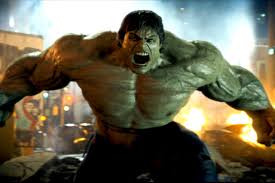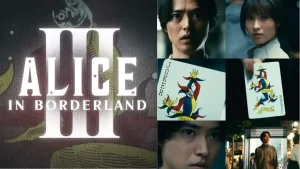
Hulk, directed by Ang Lee, is a unique interpretation of the iconic Marvel character that delves deep into the psychological struggles of Bruce Banner (Eric Bana). Released in 2003, this film stands apart from its superhero counterparts by emphasizing character development and emotional depth over conventional action sequences.
The story begins with Bruce Banner, a brilliant scientist, who is exposed to gamma radiation during a tragic accident in his childhood. This event triggers a profound transformation within him, leading to the emergence of the Hulk, a powerful creature fueled by rage. The film explores the duality of Banner’s character, portraying him as a tormented soul caught between his intellect and the primal instinct of the Hulk. Bana’s performance captures this inner conflict, showcasing a man who is both brilliant and deeply flawed.
Ang Lee’s direction is notable for its artistic approach, incorporating elements of comic book aesthetics and visual storytelling. The film utilizes a unique editing style that mimics the feel of comic panels, creating a visually engaging experience. The use of color and framing adds to the emotional resonance of the narrative, highlighting Bruce’s isolation and struggles.
The film’s supporting cast features Jennifer Connelly as Betty Ross, Bruce’s love interest, who provides emotional grounding amid the chaos. Their relationship serves as a crucial anchor for Bruce, showcasing his longing for normalcy and connection. Sam Elliott’s portrayal of General Thaddeus “Thunderbolt” Ross adds another layer of complexity, representing the military’s desire to control the Hulk, while also illustrating the father-daughter dynamic between him and Betty.
Hulk is driven by themes of rage, identity, and the consequences of unchecked power. As Bruce grapples with his transformations, the film poses significant questions about the nature of anger and how it can manifest in destructive ways. The Hulk symbolizes the darker aspects of human emotion, challenging audiences to confront their own inner demons.
The film’s climax culminates in a battle between Hulk and his father, David Banner (Nick Nolte), who has also undergone a transformation due to his experiments with gamma radiation. This confrontation serves as a metaphor for the struggle between father and son, illustrating the generational trauma that shapes Bruce’s identity. The special effects used to bring the Hulk to life are impressive for the time, with the character’s immense size and strength showcased through dynamic action sequences.
However, Hulk received mixed reviews upon its release, with some critics praising its ambition and depth, while others found it lacking in traditional superhero action. The film’s pacing and emphasis on character exploration over spectacle led to varied audience reception. Despite this, it has garnered a cult following over the years, with many appreciating its introspective take on the superhero genre.
In conclusion, Hulk (2003) is a thought-provoking film that explores the complexities of anger, identity, and human emotion through the lens of one of Marvel’s most enduring characters. Ang Lee’s artistic vision, combined with strong performances, creates a unique cinematic experience that sets it apart from typical superhero films. While it may not fit the mold of a traditional action blockbuster, Hulk offers a rich narrative that delves deep into the psyche of its protagonist, making it a noteworthy entry in the realm of comic book adaptations.




